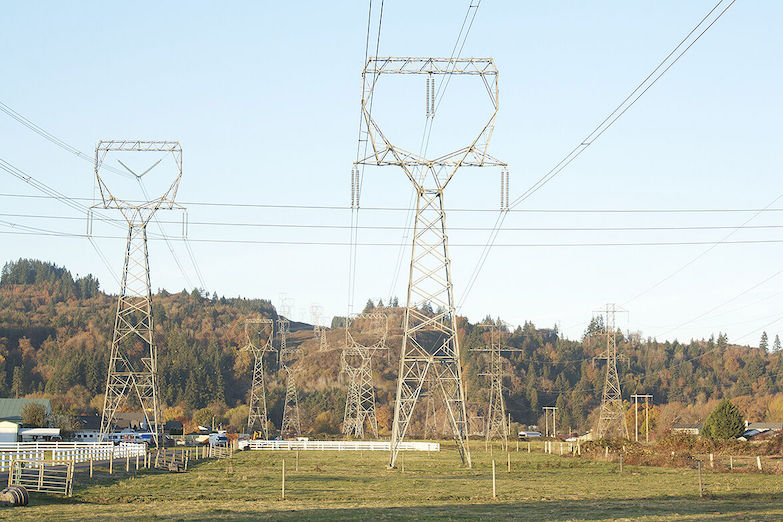forum
library
tutorial
contact

Washington Needs Outside Help
to Meet Green-Energy Law
by Don Jenkins
Capital Press, January 17, 2023
|
the film forum library tutorial contact |

|
Washington Needs Outside Help
by Don Jenkins
|
States traditionally can block interstate transmission lines,
though FERC can permit lines through "national interest" corridors.
 OLYMPIA -- Washington's climate ambitions rely heavily on undeveloped technology and other states, a Senate committee heard Friday during a hearing on the state's energy production.
OLYMPIA -- Washington's climate ambitions rely heavily on undeveloped technology and other states, a Senate committee heard Friday during a hearing on the state's energy production.
Washington eventually will have to import green energy to offset a coming ban on electricity from fossil fuels, Commerce Department energy policy manager Glenn Blackmon said.
"The main reason for that is the wind blows harder in the Rocky Mountains than in the Columbia Gorge, and the sun shines brighter in the Southwest than it does in Sunnyside, Wash.," he said.
Environment and Energy Committee Chairman Joe Nguyen, D-Seattle, said he scheduled the work session to prepare committee members for energy-related legislation.
Lawmakers will consider bills to streamline permitting power projects and planning transmission lines, and will allocate $1.7 billion expected to come from cap-and-trade auctions.
Interstate transmission lines and out-of-state power projects are vital to Washington's green-energy ambitions, but largely are beyond the control of bills the Legislature can pass.
Electric utilities will be barred from supplying electricity generated by natural gas or coal beginning in 2045. By then, demand for electricity will have nearly doubled, Commerce projects.
Eastern Washington solar and wind farms will provide some power. But wind speeds and sunshine there are middling compared to elsewhere, according to the National Renewable Energy Laboratory.
Washington, which now exports hydropower to other states, will import 43% of its electricity by 2050, Commerce predicts. Almost all is expected to be from Montana and Wyoming wind farms.
Besides being wind-rich, both states are coal rich and have been at odds with the Inslee administration over its opposition to fossil fuels.
Montana and Wyoming accused Gov. Jay Inslee in 2020 of blocking a proposal to export coal from a Columbia River terminal in Longview as a means of advancing his political ambitions.
The Inslee administration discriminated against two landlocked states seeking to ship a commodity important to them overseas, the suit claimed.
Washington denied the allegations, and the U.S. Supreme Court declined to hear the case.
Bonneville Power Administration state liaison Liz Klumpp told the Senate committee that major transmission projects likely will be needed in the next decade to meet Washington's green-energy laws.
"These are big efforts. And, you know, not usually popular," she said.
"Frankly, the farther out you get, you're really hoping technology continues to develop, and we find five-day (battery) storage technology. That's the magic button," she said.
States traditionally can block interstate transmission lines, though the Federal Energy Regulatory Commission can permit lines through "national interest" corridors.
The Energy Department has not designated any such corridors since 2011.
FERC announced Friday it will propose that transmission line proponents be allowed to simultaneously apply for state and federal approval, rather than first trying to win state permission.
learn more on topics covered in the film
see the video
read the script
learn the songs
discussion forum
